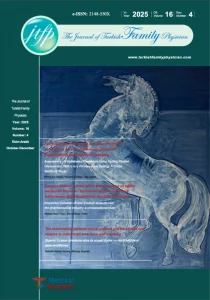Urinary Tract Infections In Elderly Patient, Evaluation, Treatment And Prevention
Age related changes to the urinary tract and associated illnesses predispose older adults to urinary tract colonization and to the development of urinary tract infections (UTIs). Among residents in long term care UTIs are the most common source of bacteremia. Bacteremia is more likely to occur in catheterized than non-catheterized residents and can lead to significant morbidity and mortality in the elderly. Diagnosis of urinary tract infections (UTIs) in older adults depends on clinical decision. Non-specific signs and symptoms with uncertain localization are seldom due to a UTI in the noncatheterized patients. Asymptomatic bacteriuria does not require treatment. Routine screening for UTIs is not necessary. Older adults often have decreased renal function, which needs to be considered when selecting antibiotic therapy for UTI in the elderly. Inappropriate use of antibiotics may adversely affect patient outcomes and promote antimicrobial resistance.
References
- Nicole NE. Epidemiology of Urinary tract infection. Infect med 2001;18:153-162.
- Kurtaran B, Saltoğlu N, Gökel Y, Köseoğlu Z, Zeydaoğlu G. Acil polikliniğine başvuran yaşlı hastalarda bir infeksiyon prevalans belirleme çalışması. İnfek Derg 2004; 18: 277-281.
- Wagenlehner FM, Naber KG, Weidner W. Asymptomatic bacteriuria in elderly patients: significance and implications for treatment. Drugs Aging. 2005; 22(10): 801-807.
- Swart W, Soler C, Holman J. Uncomplicated UTIs in elderly patients: How best to treat. Consultant 2004; 44(14): 1805-1809.
- Juthani-Mehta M, Drickamer MA, Towle V, et al. Nursing Home Practitioner Survey of Diagnostic Criteria for Urinary Tract Infections. Journal of American Geriatrics Society 2005; 53: 1986-1990.
- Ginde AA, Rhee SH, Katz ED. Predictors of outcome in geriatric patients with urinary tract infections. J Emerg Med 2004; 27: 101-108.
- Tanyel ve ark. Yaşlı hastalardaki üriner sistem enfeksiyonlarının değerlendirilmesi. İnfeksiyon Dergisi (Turkish Journal of Infection) 2006; 20 (2): 87-91.
- Buttaro TM, Aznavorian S, Dick K. Clinical Management of Patients in Subacute and Long-Term Care Settings, 2006.
- Loeb M, Bentley DW, Bradley S, et al. Development of minimum criteria for the initiation of antibiotics in residents of long-term facilities: Results of a consensus conference. Infect Control Hosp Epidemiol 2001; 22(2): 120-124.
- Eidelman Y, Raveh D, Yinnon AM, et al. Reagent strip diagnosis in a high-risk population. AM J Emerg Med 2002; 20: 112-113.
- Gammack JK. Use and management of chronic urinary catheters in long-term care: much controversy, little consensus. J AM Med Dir Assoc 2002;3: 162-168.
- Takahashi P, Trang N, Chutka D, et al. Antibiotic Prescribing and Outcomes Following Treatment of Symptomatic urinary tract infections in older women. JAMDA 2004; 5: S12-S15.
- Meyers BR, Sherman E, Mendelson MH, et al. Bloodstream infections in the elderly. Am J Med 1989; 86: 379-84.
- Kibar F, Yaman A, Dündar İH, Pekmezci DU. Üriner sistem infeksiyonlarından izole edilenbakteriler ve duyarlılıkları. X. Türk Klinik Mikrobiyoloji ve İnfeksiyon Hastalıkları Kongresi (15-19 Ekim 2001, Adana) Program Kitabı, 2001; 321, P-19/04.
- Karapınarlı K, Tulumoğlu Ş, Kaya E. Çocuklarda idrar yolu infeksiyonlarından izole edilen etkenler ve antibiyotiklere dirençleri. X. Türk Klinik Mikrobiyoloji ve İnfeksiyon Hastalıkları Kongresi (15-19 Ekim 2001, Adana) Program Kitabı, 2001; 322, P-19/06.
- Goettsch W, Van Plet W, et al. Increasing resistance 10 flouroquinolones in Escherichia coli from urinary tract infections in the Netherlands. J Antimicrob Chemother 2000; 46: 223-228.
- Şencan İ, Sevinç ME. Toplum kökenli üropatojen Escherichia coli izolatlarında antimikrobiyal direncin izlemi. Klimik Derg 2002;15: 85-88.
- Bozkurt H, Güdücüoğlu H, Gülmez S, Aygül K, İzci H, Berktaş M. Erişkin Yaş Grubu İdrar Kültürlerinden İzole Edilen Escherichia Coli Suşlarının Antimikrobiyallere Duyarlılıkları. Van Tıp Dergisi 205;12 (4): 232-235.
- Ay S, Abut İşeri L, Duman B. İdrar Örneklerinden İzole Edilen Gram Olumsuz Mikroorganizmaların Antibiyotiklere Duyarlılıkları, İnönü Üniversitesi Tıp Fakültesi Dergisi 2003; 10: 59-62.
- Türkmen L. İdrar örneklerinden izole edilen gram negatif bakterilerin değişik antibiyotiklere duyarlılığı. İnönü Üniv. Tıp Fak Derg. 2002; 9: 185-189.
- Özkütük A, Esen N, Yapar N, Şengönül A, Yuluğ N. İdrar kültürlerinden izole edilen Escherichia coli ve Klebsiella pneumoniae suşlarının çeşitli antibiyotiklere direnç durumları. Dokuz Eylül Üniv. Tıp Fak Derg 2001;15: 41-43.
- Timurkaynak F, İnci KE, Arslan H. Toplum kökenli ve nosokomiyal üriner sistem infeksiyonlarından izole edilen etkenlerin dağılımı ve antibiyotik duyarlılığı, Ankara Üniv Tıp Fak Mec 2001; 54: 287-292.
- Kamel H. K. Managing Urinary Tract Infections in the Nursing Home: Myths, Mysteries and Realities. The Internet Journal of Geriatrics and Gerontology. 2004; 1(2).



